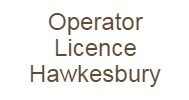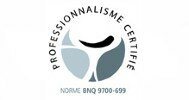Firearms
Responsibility: Sûreté du Québec
If the deceased bequeaths firearms, you must make the necessary verifications and complete the form for the transfer of ownership. As the liquidator of the estate, you have the obligation to store the firearms safely until they can be legally disposed of. You must either transfer them to an appropriately licensed heir or business or have them destroyed by the appropriate local police department. You may keep the firearms temporarily, even if you do not have a firearms licence, if you are not subject to a court prohibition.
For more information, call 1-800-731-4000 or visit the Inherited Firearms section of the Canada Firearms Centre website.
If you have inherited firearms or are the executor of an estate that includes firearms, here is some information about the Firearms Act that is relevant to you.
IF YOU ARE AN HEIR
Licensing Requirements
In order to acquire a firearm in any way, including by inheritance, you must be at least 18 years old and have a valid Possession and Acquisition Licence (PAL). Although a Possession Only Licence (POL) allows you to keep firearms that you have legally owned since December 1, 1998, it does not allow you to acquire other firearms. Therefore, if you have a POL, you must replace it with a PAL.
A PAL is only valid for the class or classes of firearms specified in it. The three classes of firearms are:
- Non-restricted firearms: most rifles and shotguns;
- Restricted firearms: permitted only for authorized purposes such as target shooting and collecting;
- Prohibited firearms: see below for information on grandfathering requirements.
To obtain a PAL or to upgrade your licence for different classes of firearms, you must send us form CAFC 921. In order to obtain this licence, you must meet specific firearms safety training requirements.
Grandfathering Requirements for Prohibited Firearms
Generally, in order to acquire a prohibited firearm, you must be "grandfathered" in for that particular class of prohibited firearm. In other words, you must have continuously held a valid registration certificate for a firearm of that class since December 1, 1998. A registration certificate is only valid if you already have a valid licence that authorizes you to possess that class of firearm.
Exception: You do not need to be grandfathered to inherit a registered prohibited handgun of 25 or 32 calibre or handguns with a barrel length of 105 mm or less if:
- the handgun was manufactured before 1946, and
- it is left with a spouse, brother, sister, child or grandchild of the person in whose name it is registered; and
- the handgun is used for a permitted purpose, such as target shooting or as a collector's item.
REGISTRATION OF FIREARMS
The firearm will need to be registered to you as part of the transfer process that must occur when a firearm changes ownership. You will find more information on this in the section for Executors.
You will receive a new registration certificate in the mail for each firearm transferred to you.
FEES
The fee for an initial PAL for non-restricted firearms only is $60. It costs $80 if it covers any combination of non-restricted, restricted and prohibited firearms, except in the following cases:
- If you are renewing a PAL or changing your licence privileges, the fee is waived until May 16, 2010.
- If you hunt or trap with a non-restricted firearm to support yourself or your family, you may not be required to pay a fee for a PAL for that class of firearm.
- There is no fee to transfer or register a firearm or to obtain an Authorization to Transport.
IF YOU ARE THE EXECUTOR
While the Firearms Act sets out how firearms can be transferred and who can obtain them, the role of the executor is determined by provincial probate laws.
Probate laws can vary from province to province. However, there is a common law principle that, as executor, during the settlement of the estate, you generally have the same rights to possess firearms as the deceased had. Therefore, even if you yourself are not licensed to possess firearms, you can generally keep a firearm left in your will temporarily while you deal with the distribution of the estate.
If you are prohibited by court order from possessing firearms, you cannot take possession of the firearms left in the will, but you can still act as executor to transfer the firearms to someone who can legally acquire them.
If the owner did not have a valid licence or registration certificate for the firearm, he or she possessed it illegally, which puts you at risk of being punished for illegal possession unless you take prompt action to comply with the law - for example, transferring the firearm to a properly licensed individual, deactivating the firearm, or turning it over to a police officer or firearms officer for disposal.
If you are not sure if the deceased had a licence or registration certificate, you can call 1-800-731-4000 to obtain this information.
To obtain information about a firearm that is registered to another person, or to transfer the firearm to another person, you must prove that you are legally entitled to do so.
To confirm that the registered owner is deceased, you will need to provide a copy of one of the following documents:
- death certificate
- Letters of probate;
- a document from a police department or coroner (on letterhead).
To prove that you are the executor, you must submit a completed RCMP Form 6016 "Declaration of Authority to Act on Behalf of an Estate".
TRANSFERRING OWNERSHIP OF A FIREARM
When you transfer the firearm to the new owner, you must follow a specific process to ensure that the new owner is eligible to possess the firearm, that the Registrar is notified of the transfer and that the firearm is registered to the new owner.
To begin the process of transferring a registered firearm, call 1-800-731-4000. You can do the entire process over the phone or request a paper form (form CAFC 681 for restricted and prohibited firearms or form CAFC 682 for non-restricted firearms). Both you and the new owner will need to be involved in the transfer process.
VERIFYING FIREARMS
A firearm must be verified by an approved verifier before it is transferred to a new owner, unless :
- the firearm has already been verified;
- the description of the firearm has not changed
- the Registrar is satisfied that the firearm does not need to be re-verified.
Restricted and prohibited firearms that have already been registered in Canada are already deemed to be verified. They do not need to be verified again unless the Registrar requests another verification to confirm their description or classification. Some firearms may not yet have been verified. Call 1-800-731-4000 for assistance in verifying a firearm.
INELIGIBLE HEIRS OR UNWANTED FIREARMS
If no heir is eligible to possess firearms or if the heir does not want the firearms, the estate may:
- sell or give the firearm to an individual, museum or business licensed to acquire the type of firearm in question through the official transfer process;
- Exporting the firearm to a country that allows it: contact the Department of Foreign Affairs and International Trade at 1-800-267-8376 for information or export permit requirements;
- Request that the firearm be permanently deactivated so that it no longer meets the definition of a firearm and is therefore exempt from the requirements of the Firearms Act;
- Give the firearm to a police officer or firearms officer for disposal: call first.
Other Requirements
If the deceased owner had a valid firearms licence, please send this document and a copy of the death certificate to
Central Processing Site
P.O. Box 1200, Miramichi, New Brunswick E1N 5Z3












